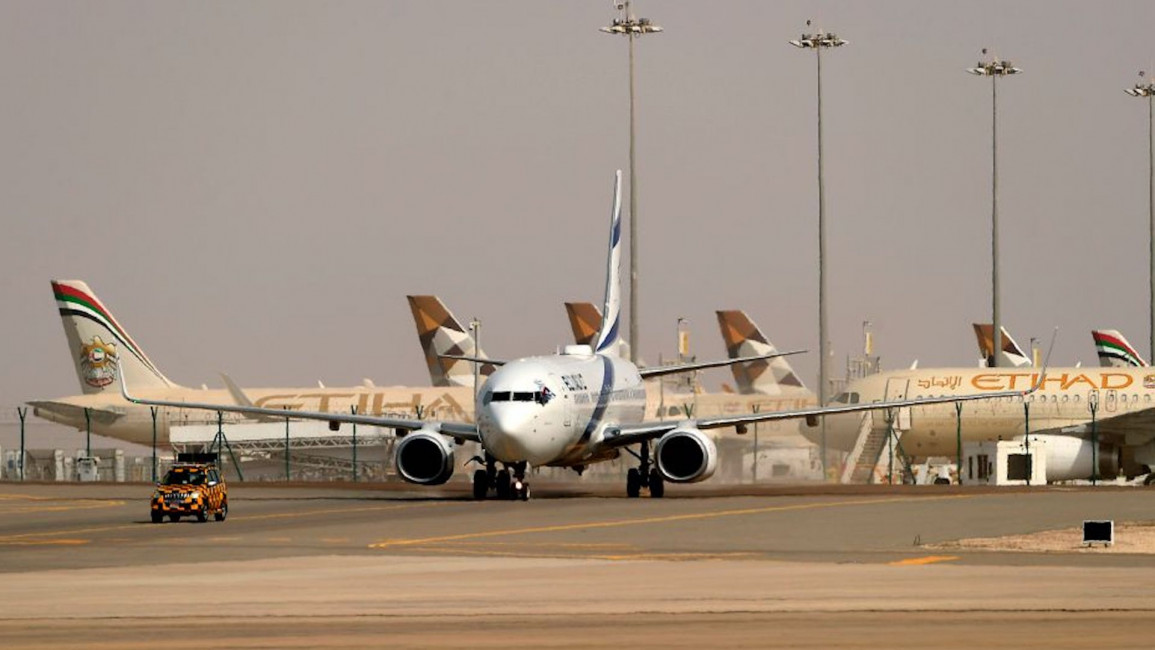US-Israel delegation leaves UAE after 'ground-breaking' normalisation visit
The United Arab Emirates and Israel are expected to sign the US-brokered accord, Israel's first with a Gulf nation and only its third with an Arab state, at the White House in coming weeks.
Jared Kushner, President Donald Trump's son-in-law and White House advisor, led the delegation, which arrived in the Emirati capital Monday on the first ever commercial flight from Tel Aviv.
The Israeli press celebrated the direct flight, laden with symbolism, which in another breakthrough was also allowed to cross the airspace of Saudi Arabia.
"The flight of peace" ran the front-page headline of top-selling Yediot Aharonot daily, saying that "no matter how we look at it... this is a fascinating historic event".
The US is on a diplomacy drive to push more Arab nations to strike deals with Israel. Although none have yet announced such moves, Kushner said he hoped another would emerge soon.
"Let’s hope it’s months" as opposed to years, he said when asked by the Emirati official news agency WAM when he expected a breakthrough, adding it was "logical" that all 22 Arab states could one day follow suit.
|
Balance of power
The Palestinians have condemned the deal as a stab in the back by a major Arab player while they still lack a state of their own, and Israel's arch-rival Iran has been scathing in its criticism.
Supreme leader Ayatollah Ali Khamenei tweeted Tuesday that "the UAE betrayed the world of Islam, the Arab nations, the region's countries, and Palestine".
Before leaving on Tuesday, Kushner visited a UAE air base where the US operates F-35 stealth fighter jets coveted by Abu Dhabi – the thorniest issue in the establishment of ties, which was motivated in part by the need to combine forces against Iran.
Israel has denied reports that the deal hinges on the sale of US F-35s to the UAE. Prime Minister Benjamin Netanyahu has said he opposes a move that could blunt the Jewish state's strategic edge.
Kushner said Monday that the US could maintain that edge "while also advancing our military relationship with the United Arab Emirates" and that the issue would be discussed further in the coming weeks.
The two countries' national security advisors, Israel's Meir Ben-Shabbat and the UAE's Sheikh Tahnoun bin Zayed, joined Kushner for the talks on cooperation between the two highly developed Middle East economies.
During the visit they discussed cooperation in investment, finance, health, space exploration, civil aviation, foreign policy and tourism and culture.
Israel and the UAE on Tuesday signed their first protocol in banking and finance, according to Netanyahu's office.
"We will soon announce additional agreements in aviation, tourism, trade and others," the prime minister in a statement.
Israel also said that the two sides on Tuesday held their first meeting on the "possibility of the mutual opening of embassies", and that direct commercial flights between the Jewish state and the UAE will likely take off by the end of the year.
"It wouldn't be a surprise if by the end of 2020 there will be direct flights between Israel and the UAE," foreign ministry spokesman Lior Haiat told the English website of Al-Arabiya, a Saudi-owned broadcaster.
'Pains us deeply'
Kushner headed to Bahrain on Tuesday, a week after a visit by Secretary of State Mike Pompeo, as the US tries to seize on the momentum of the UAE's move.
He met with King Hamad bin Isa Al-Khalifa, who said stability in the region relied on Saudi Arabia, according to the official Bahrain News Agency – underlining expectations that it will not strike a deal with Israel before the region's heavyweight acts.
Read also: UAE-Israeli normalisation deal 'allows Jewish worshippers to pray' at Al-Aqsa compound: report
Saudi Arabia has said it will not normalise relations until Israel agrees on the establishment of an independent Palestinian state, in keeping with the decades-old stance of most Arab nations.
Under the accord, Israel agreed to suspend its planned annexations in the occupied West Bank – but Netanyahu has insisted the plans remain on the table.
Follow us on Facebook, Twitter and Instagram to stay connected



